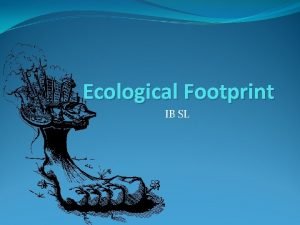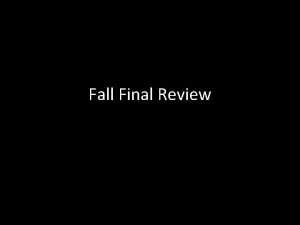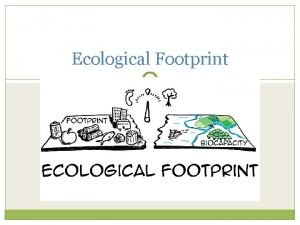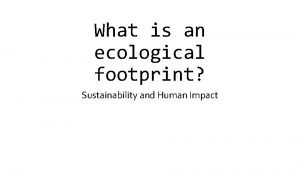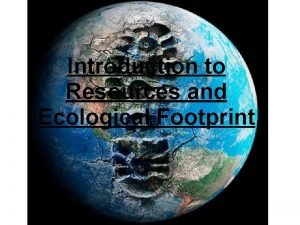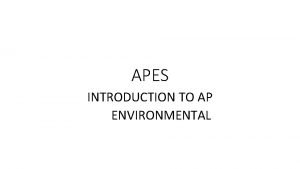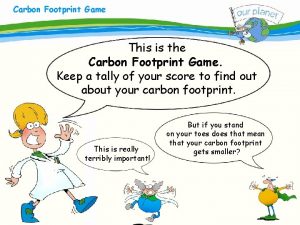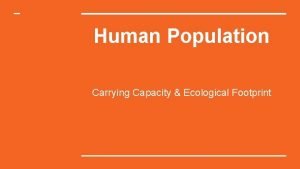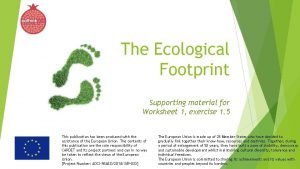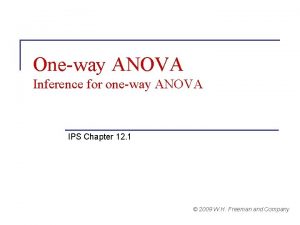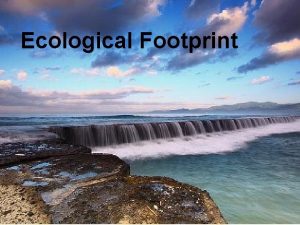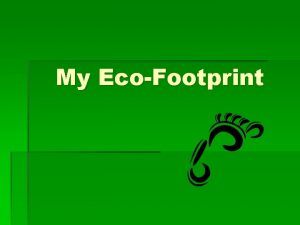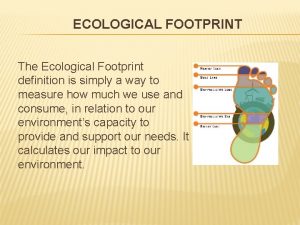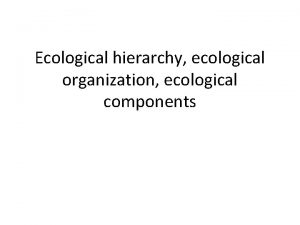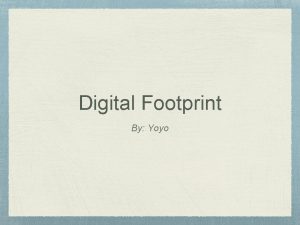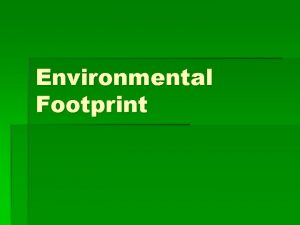Ecological Footprint What is Ecological Footprint A way









- Slides: 9

Ecological Footprint

What is Ecological Footprint? A way of measuring the demand humans put on the environment The amount of space needed to support a person’s activities Can be used to measure one person or the population of a city, country or the world

How is the EF measured? A table is used based on the amount of “productive land” needed to support human activities Types of land include: Crop land (fruits, veggies) Forested land (trees) Pasture land (animals) Energy land (energy source) Degraded land (used to be productive)

Measuring EF For example: For dinner you have a steak, baked potato (with butter and sour cream) and vegetables. Therefore, you are using: • crop land (for the vegetables and potato) • Pasture land (cow-for the steak and cow for the butter and sour cream) • Energy to cook the meal Land is not just local-as we rely on products from all around the world Remember, ALL human activities impact the land leave an Ecological Footprint

What does this mean to The average Canadian’s EF Canadians? is 4. 27 ha/person Canada is only part of the world-so we must consider the rest of the world World’s EF is 1. 8 ha/person If all people lived like Canadians we would need 2 additional earths Fair Earthshare-equal amount of earth for the world population=1. 44 ha/person

Sustainability “Sustainable development is development that meets the needs of the present without compromising the ability of future generations to meet their own needs. ” • World Commission on Environment and Development

Sustainability If we continue to populate, consume products at our current rate and expect our economy to grow every year without replenishing we will experience Hardin’s Tragedy of the Commons Evidence (Cartright, On the Threshold) • Fish stocks (i. e. East Coast Fisheries) • Aquifers emptying (depleting at rate 20 times faster than replenishment) • Forests being cut down (1/4 of forests cut in last 40 years)

Steps to Sustainability Shift values from excessive material consumption Use technology to change industrial processes to reduce pollution Use education and media to increase ecological awareness Tax incentives for conservation and ecofriendly products Develop laws holding business accountable Improve efficiency and accessibility of public transportation

Video http: //vimeo. com/11078685 Ecological Footprint Animation
 Ecological footprint map
Ecological footprint map Calculating ecological footprint involves consideration of
Calculating ecological footprint involves consideration of Ecological footprint components
Ecological footprint components Whats an ecological footprint
Whats an ecological footprint Ecological footprint ap human geography example
Ecological footprint ap human geography example Overshoot definition apes
Overshoot definition apes Ecological footprint game
Ecological footprint game Islandwood ecological footprint
Islandwood ecological footprint The human footprint worksheet
The human footprint worksheet Anova hypothesis examples
Anova hypothesis examples
